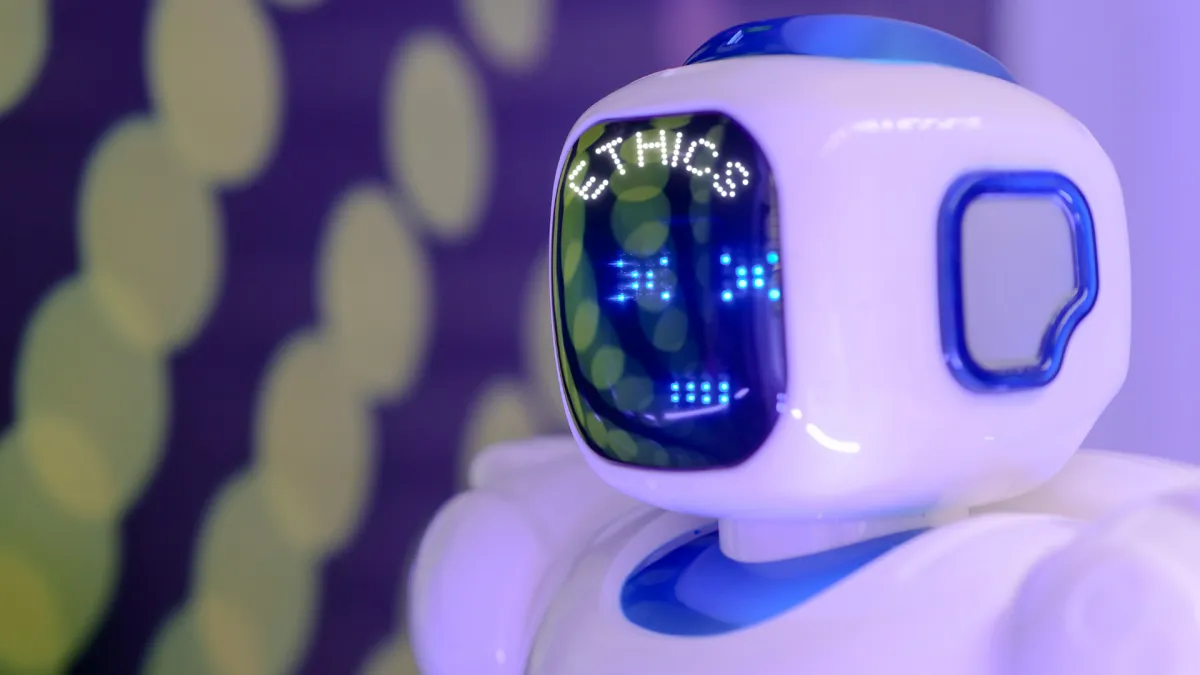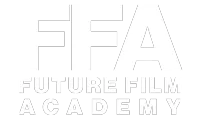FFA BLOG

Ethical Considerations in the Age of AI: Navigating the Intersection of Technology and Filmmaking
The integration of artificial intelligence (AI) into filmmaking is transforming the industry. AI offers filmmakers tools that streamline creativity and production, from generating story ideas to creating hyper-realistic effects. But with these advancements come ethical challenges that we can’t afford to ignore. As someone deeply invested in the creative process, I believe we must strike a balance between leveraging AI's potential and safeguarding the rights, integrity, and diversity of creators.

The Core Issue: Uncompensated Use of Intellectual Property
One of the most pressing ethical concerns is how large language models (LLMs) are trained. These AI systems use vast datasets that often include scripts, books, and other intellectual property (IP) without the original creators’ consent or compensation. For example, an AI tool might be trained on screenplays written by countless screenwriters, yet none of those writers see any royalties or acknowledgment.
This is not just unethical—it’s a fundamental devaluation of creative labor. Imagine a studio using AI to write or edit a script by drawing on years of work from underpaid screenwriters without their input or payment. This issue was a focal point during the recent Hollywood strikes, where writers and actors protested the unregulated use of AI in creating scripts and digital performances.
Maybe, a licensing model could help solve this problem. Filmmakers and screenwriters could submit their work to an AI training library and receive compensation whenever their data is used. This system would ensure creators are fairly rewarded and maintain control over their IP.

AI Bias and Representation in Storytelling
Another major challenge is bias. AI systems reflect the data they're trained on, which can often contain historical and cultural stereotypes. If filmmakers use biased AI tools, they risk perpetuating skewed or offensive depictions of characters and communities.
For instance, an AI generating a cast of characters for a film might lean heavily on outdated stereotypes, reinforcing harmful tropes rather than promoting authentic representation. This could alienate audiences and diminish the film's quality.
Filmmakers must prioritize diversity in the datasets used to train AI. Additionally, integrating bias-detection algorithms and involving diverse voices in the creative process ensures that AI-generated content aligns with modern values.
Privacy Concerns: The Rise of Deepfake Technology
Deepfake technology, while innovative, raises significant privacy and consent issues. It allows filmmakers to create hyper-realistic replicas of actors' faces and voices, often without the actors’ direct involvement. While it can be used creatively—for example, de-aging actors or bringing historical figures to life—it can also be misused.
Consider a scenario where a production uses a digital likeness of an actor without explicit consent. This not only infringes on their rights but could also damage their reputation if the portrayal is controversial or offensive.
Filmmakers must establish clear guidelines for using deepfake technology. Consent from actors is non-negotiable, and audiences should be made aware when such techniques are used. Transparency builds trust and sets ethical standards for the industry.

Embracing AI as a Tool, Not a Replacement
AI has immense potential as a creative tool. It can generate ideas, assist with editing scripts, and even help visualize scenes during pre-production. However, the key is to use it responsibly.
One approach I believe is particularly ethical is training private AI models on data you own. For instance, if I were to upload my previously written scripts to a model, I could use it as a personalized assistant to refine dialogue or brainstorm new plotlines. This keeps the use of AI confined to my creative ecosystem without infringing on others’ IP.
A filmmaker could use AI to draft multiple variations of a scene, then refine those drafts with their own artistic input. By treating AI as a collaborator rather than a creator, we preserve the unique vision and artistry that makes filmmaking so special.
Building a Framework for Ethical AI
The path forward requires industry-wide collaboration. Establishing clear standards around AI usage is essential for responsible innovation. These standards should address:
Data Transparency: Filmmakers must disclose how AI is used in their projects, from scriptwriting to visual effects.
Consent: Individuals whose likeness or work is used must give explicit permission.
Compensation: Creators should be paid fairly for their contributions, whether through licensing models or royalties.
Bias Mitigation: Regular audits of AI-generated content should ensure diversity and fairness.
Adhering to these principles allows us to harness AI's potential while respecting and valuing the rights and contributions of all creators.
Paving the Path Forward: Ethical AI in Filmmaking
AI is undeniably powerful, but with great power comes great responsibility. As filmmakers, we must ensure that the adoption of AI enhances the creative process without compromising ethics. This means advocating for fair compensation, protecting privacy, and fostering inclusivity in every step of the production process.
If we approach AI with integrity, it can become a tool that empowers creators rather than exploiting them. The future of filmmaking depends on us navigating this intersection of technology and creativity thoughtfully and ethically.
Let’s lead the way by setting a standard for innovation that respects and uplifts the voices of all contributors to the art we love.

Nick Sadler
Nick Sadler is an executive producer and the founder and CEO of First Flights Media Ltd, the film development program run in partnership with Goldfinch Entertainment. Through his Short Film Fund he has executive produced over 23 short films in just three years, selected for over 100 festival awards, including the award-winning ‘The Impatient Man’ and Oscar® and BAFTA winning ‘An Irish Goodbye’
Studio 202 | Mainyard Studios | 280 Mare St | London | E8 1HE | UK
+44 7360 268742
hello@futurefilmacademy.com
www.futurefilmacademy.com
